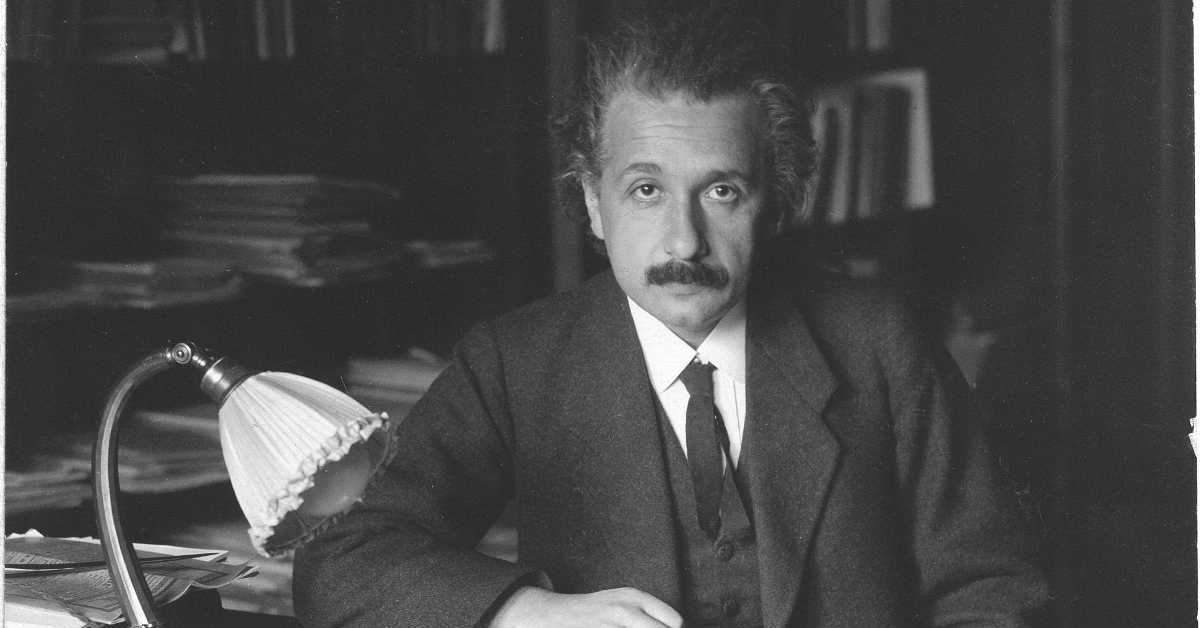A story about a famous physicist is popular on social networks, designed to illustrate that many do not notice other people’s successes, but criticize isolated mistakes. We have verified the accuracy of such publications.
The "canonical" version of the text, which tells an instructive episode from the life of Albert Einstein, looks like this: “One day Albert Einstein wrote on the blackboard:
9 × 1 = 9
9 × 2 = 18
9 × 3 = 27
9 × 4 = 36
9 × 5 = 45
9 × 6 = 54
9 × 7 = 63
9 × 8 = 72
9 × 9 = 81
9 ×10 = 91
Suddenly there was chaos in the hall because Einstein made a mistake. The correct answer is 9 × 10 = 90.
And all his disciples made fun of him.
Einstein waited until everyone was silent and said, “Even though I got nine questions right, no one congratulated me. But when I missed only one question, everyone started laughing. This means that even if a person is very successful, society will notice his slightest mistake. And they will like it. So don’t let criticism ruin your dreams. The only person who never makes mistakes is the one who does nothing.”
This story was reported on VKontakte as quite large publics, and separate users. Similar publications can also be found in Facebook*, Twitter, Telegram and other social networks.
Any text written or spoken by a person with Einstein's level of fame is the subject of detailed study by modern historians, who collect all known materials into huge collections and digital projects. Various universities have been maintaining similar online collections for several years, dedicated to, for example, Margaret Thatcher, Winston Churchill, Isaac Newton, Abraham Lincoln, Charles Darwin and many others. Einstein's legacy are engaged at Princeton University and Caltech in the USA, as well as at the Hebrew University of Jerusalem.
In the collection published in 2011 The Ultimate Quotable Einstein, which was prepared at Princeton, the story about an error in a simple arithmetic example is not mentioned. Moreover, in Google Books there is not a single publication on English And Russian languages that would describe the incident, which was so popular among social network users.
With a request to comment on a story popular on social networks, fact checkers from the Australian AAP contacted to several organizations dedicated to Einstein's legacy. Representatives Einstein Papers Project (a group of researchers working at the California Institute of Technology) told our colleagues that the story about an intentional error is undoubtedly a false quote. Employee Albert Einstein Archive at the Hebrew University of Jerusalem AAP response: “We have never heard of this story and this quote; therefore, it is highly likely to be incorrect.”
Apparently, the story about Einstein’s mistake “grew up” on social networks from publications about an unnamed teacher, and in these stories, the first multiplication operation in the series (9 × 1 = 7) was incorrect, and not the last one. Otherwise, the content of such publications is identical to those that talk about the case of the Nobel laureate. Posts with an edifying story about the teacher on June 13 and 14, 2020 were posted in Russian by users "VKontakte", Instagram* And Facebook*.
Probably the earliest mention of this story on the Internet dates back to the summer of 2016. On August 18, one of the users of the Medium website published it in English on his blog, and in the following days, Facebook users* began posting it on their pages. The only difference from the Russian-language posts is that the original story features a female teacher (in the text the pronoun she is used to describe the character).
If it is not difficult to explain the transformation of a teacher into a teacher, then with the replacement of an ordinary teacher with a Nobel laureate, everything is not so obvious. Unfortunately, we were not able to reliably establish the “genealogy” of these changes, but for the first time Einstein began to appear in posts dedicated to the story of unnoticed successes and a noticed error at the end of 2020. We managed to find publications published at that time: one on Russian and one for Spanish language (the latter was also provided with an English translation). Such posts went viral already in the fall of next year. Then they began to appear en masse in "VKontakte" (the earliest post we were able to find dates back to September 21), Russian language Facebook* (September 29) and to a lesser extent Twitter (October 7). First wave of popularity on English-language Facebook* had to at the end of September.
Thus, not a single authoritative source mentions the story of Einstein's mistake in the simplest mathematical operation. Popular posts about the great physicist on social networks grew out of earlier publications, where the main character was an unnamed teacher. In turn, the Nobel laureate replaced it with a slightly revised text, which Internet users began posting on their pages at the end of 2020 and which gained viral popularity almost a year later.
*Russian authorities think Meta Platforms Inc., which owns the social networks Facebook and Instagram, is an extremist organization; its activities in Russia are prohibited.
Cover photo: American Museum of Natural History
Not true
- AAP. Story about Einstein's maths mistake doesn't add up
- Is it true that Albert Einstein did poorly at school?
- Is it true that the author of Einstein's riddle is Albert Einstein himself?
If you find a spelling or grammatical error, please let us know by highlighting the error text and clicking Ctrl+Enter.






